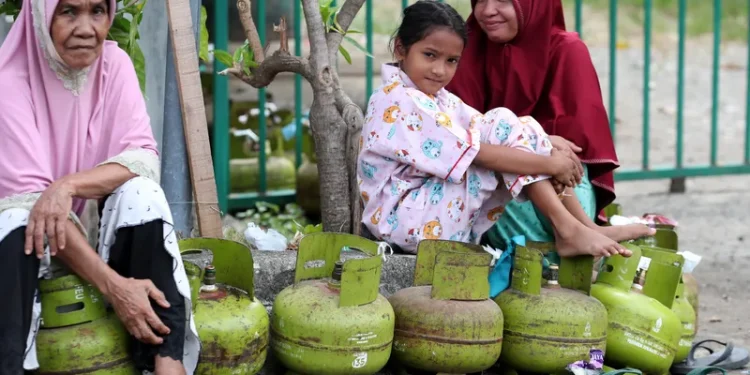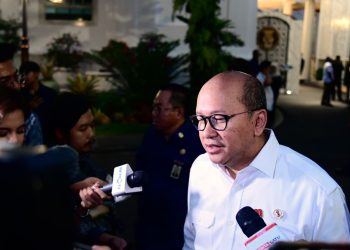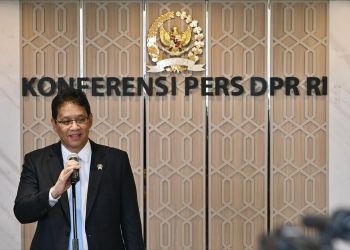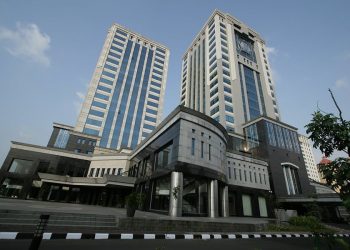Jakarta, Indonesia Sentinel — The capital city is grappling with a significant shortage of 3kg LPG, commonly known as “gas melon,” following the government’s recent restriction on the distribution of subsidized LPG. This policy, implemented on February 1, 2025, mandates that consumers purchase LPG directly from official distribution outlets, cutting off supply to smaller retailers.
Efforts to Address the Shortage
The Head of the Jakarta Manpower, Transmigration, and Energy Office (Disnakertransgi), Hari Nugroho, has outlined measures to alleviate the crisis.
“We are actively monitoring the situation to ensure the availability of 3kg LPG in all regions. We’ve instructed agents and distributors to report stock conditions through morning and evening photographic updates,” Hari stated on Tuesday, February 4.
To stabilize the supply chain, the government is urging agents to promptly replenish stocks in areas facing shortages. Additionally, Pertamina, Indonesia’s state-owned oil and gas company, has been encouraged to allow more small retailers to become official distributors. This move aims to streamline the distribution process and mitigate the current bottleneck.
Rising Prices Add to Public Concern
As supplies dwindle, the price of 3kg LPG has surged. Officials are considering raising Jakarta’s highest retail price (HET) from Rp16,000 to Rp19,000 per canister, aligning it with prices in surrounding areas. “This adjustment is under discussion to reflect the realities of the supply chain and distribution costs,” Hari added.
The price hike has fueled public anxiety, with many residents fearing further increases. “The gas is already hard to find, and now it’s more expensive. It’s a double burden,” said Siti, a local resident in East Jakarta.
Avoiding Panic Buying
Authorities have also issued a plea to the public, urging them not to engage in panic buying. “We ask residents to purchase LPG based on their daily needs. Stockpiling will only worsen the shortage,” Hari emphasized. The government plans to conduct market operations to manage supply and prevent hoarding.
A Tragic Incident Highlights the Crisis
The severity of the shortage was underscored by the recent death of a housewife in Pamulang Barat, South Tangerang. The woman reportedly collapsed from exhaustion after hours of searching for LPG. She had been queueing since morning on February 3, 2025, only to return home empty-handed and fatigued. Despite being rushed to the hospital, she was declared dead on arrival.
This tragic event has intensified public scrutiny of the new policy. “It’s heartbreaking that someone died just trying to buy cooking gas. The government must find a better way to manage this,” said Ahmad, a local activist.
Government’s Long-Term Strategy
In response to the crisis, the Ministry of Energy and Mineral Resources (ESDM) has reaffirmed its commitment to ensuring that subsidized LPG reaches the intended recipients. The policy aims to improve distribution efficiency and prevent misuse of subsidies.
Pertamina has integrated nearly 63 million National Identity Numbers (NIK) into its Merchant Applications Pertamina (MAP) system, covering households, micro-businesses, farmers, fishermen, and registered retailers. “This system allows us to monitor distribution more effectively and ensure subsidies are properly allocated,” said Pertamina Patra Niaga Corporate Secretary, Heppy Wulansari.
Read Also:
Indonesian Woman Dies After Exhausting Wait for 3 Kg LPG in Pamulang
While the government insists that the total supply of LPG remains unchanged, critics argue that the distribution model needs further adjustments. “The issue isn’t the quantity of LPG but how it’s distributed. The current system is not flexible enough to meet the diverse needs of urban and rural populations,” noted energy analyst, Budi Santoso.
The government has pledged to continue monitoring the situation closely and adjust policies as needed. A dedicated hotline, Call Center 135, has been established for residents facing difficulties in obtaining LPG.
As Jakarta navigates this crisis, the hope is that swift and effective measures will restore stability, ensuring that no family has to endure such hardships simply to meet their basic cooking needs.
(Becky)


























